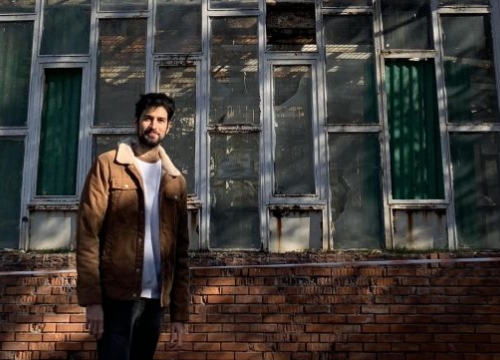LLM in International Humanitarian Law and Human Rights: What our Alumni Say
26 January 2021
Serhat Öztürk graduated from our LLM in International Humanitarian Law and Human Rights in October 2020.
Prior to that, he has been monitoring the detention and deportation processes of refugees in the Western region of Turkey and around Istanbul.
Today, Serhat is registered as a lawyer with the Istanbul Bar and works in the Inter-Agency Coordination Unit of the UN High Commissioner for Refugees (UNHCR) in Turkey – an inclusive national platform aimed at identifying protection needs of refugees and asylum seekers in the country and at providing coordinated and tailored approaches among various agencies. In this position, Serhat is focusing on the protection needs of refugees and asylum seekers in Turkey. He is also engaged in the drafting of tools to ensure a swift identification of refugee’s needs in light of a rapidly evolving context, and of internal policies and code of conducts to ensure accountability of their projects and activities to the affected populations.
What are the Strengths of the Programme?
One of the main strengths of this programme is its capacity to provide a human rights-based approach to the most complex and contemporary challenges. It also provides a very sensitive and protective to international law applying in the context of armed conflicts, with professors always presenting the majority opinions and opposing views, and teaching us with the best tools to think forward and analyse a given situation critically.
The programme also allowed me to acquire a deep legal knowledge via a variety of tasks and activity that complement each other perfectly. These include the submission of legal memoranda and research papers, internships, core courses, the LLM paper and many more. At the end of the day, this legal knowledge turns almost into an intellectual reflex to guide students in their future endeavours.
How was Teaching?
The first word that comes to my mind is intense. The teaching was intense in the sense that it required us to be an active part of it, to turn the process into a mental practice that one enjoys, and to give one’s best to truly enjoy and benefit from it. For instance, you had to come prepared to engage in the rich discussion with Professor Sassòli during the IHL course, or to make justice to his spontaneous morning questions!
Other than this, the teaching was most of the time passionate. The engagement of our professors and teaching assistants with our questions and academic debates was always highly motivating. Their dedication was noticeable in and outside class, as well as in the complementary learning activities they organized.
Your Best Memories of the Programme?
I discussed this with many classmates, especially after August 2020 when we handed our LLM papers, and each time, our study trip was the first answer. During five days, we visited Belgrade, Srebrenica and Sarajevo to reflect on the consequences of armed conflicts. It was a very humane experience we could share, and an affirmation of our motivation to work in this field of law.
Other great memories include spontaneous gatherings with classmates for a fondue or some beers or the day we played football with children in a park after we took the last exam of the first semester, or slowly gathering with friends after the quarantine measures were lifted.
What Did it Bring to your Career?
The whole year of learning certainly brought me an extensive understanding and knowledge in the various fields of international law that strive to protect human dignity. As root causes and consequences of human suffering and rights violations are always crosscutting and never one dimensional, this experience allowed me to capture the complexities of a given legal question.
I cannot consider any part of this programme as having no practical value, and this allows me to build confidence to make the right evaluation intervention when needed. Eventually, the LLM makes me feel empowered to take on a job in various fields such as international refugee law, human rights law, humanitarian law as well as domestic human rights protection.
Do you use what you learned in class in your work?
I am currently assisting in the development of tools to respond to the protection needs of refugees and asylum seekers in Turkey, as well as to ensure our accountability to the populations we are assisting. Turkey is one of the most complex refugee settings in the world, embodying various humanitarian and development needs, as well as a wide variety of actors. Working in the Inter-Agency unit of UNHCR allows me to hear from various public and civil society actors about their protection risks and concerns and I always find myself guided by the solid rights-based approach that I acquired at the Geneva Academy.
Apart from being guided by these principles, the solid human rights and refugee law knowledge I gained during my year at the Geneva Academy allows me to be conscious of legal shortcomings and protection risks in this context. Although my work relates more to social concerns than merely legal questions, knowledge and interpretation of the highest international human rights standards are always of great value to me in my assessments and efforts.
Would you Recommend It?
No doubt for this, absolutely! The whole LLM was full of knowledge and ideas shared by brilliant professors and teaching assistants. It has been the most remarkable year in my relatively short life in terms of learning and discussing the subjects I have been passionate about. In addition to all of this and gladly, I have been accompanied by inspiring classmates who share the same motivation and ideals!









